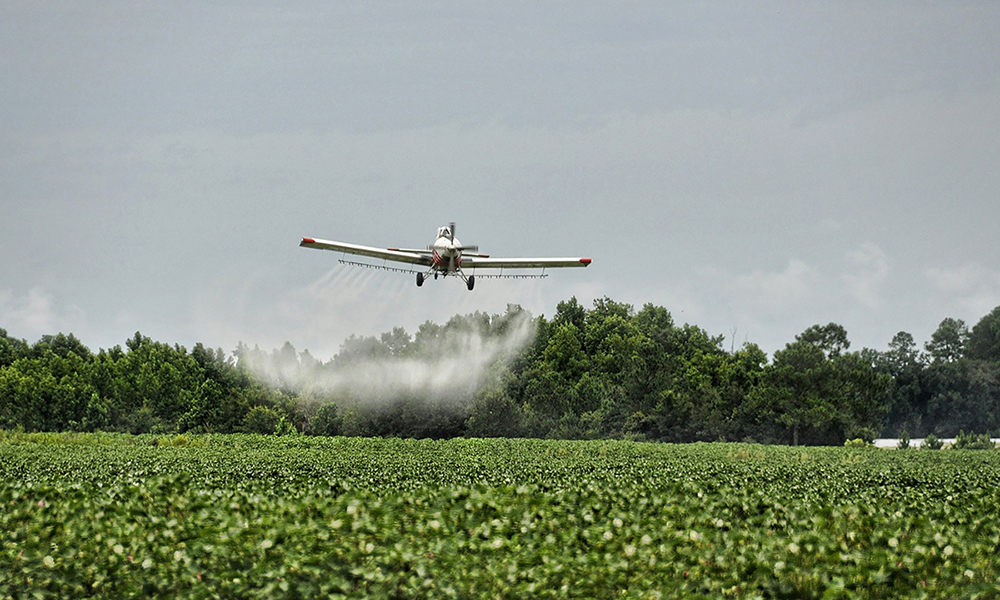
Crop dusters are a ubiquitous presence across farm fields in central Illinois in summer. The planes spray crops with pesticides, and drift from those applications can be measured miles away. (PIXABAY)
The life and death of a deadly neurotoxic chemical insecticide is entering yet another stage.
Chlorpyrifos, used in central Illinois primarily on corn, is the focus of a potential class-action lawsuit filed in California.
Use of chlorpyrifos has declined over the past two decades, but the lawsuit alleges the chemical’s toxicity lingers long after application and alleges that agricultural workers exposed to the insecticide can bring chemical exposure into their homes.
Lead attorney Stuart Calwell told Associated Press, “We have found it in the houses, we have found it in carpet, in upholstered furniture, we found it in a teddy bear, and we found it on the walls and surfaces.”
All of that chemical residue needs to be cleaned up, he said, because “it’s not going away on its own.”
In 2012, Pesticide Action Network installed its Drift Catcher monitoring equipment on two organic farms north of Peoria and found chlorpyrifos drift on both. One measurement was taken after an aerial application several miles away. A scientist familiar with the measurement said levels at that farm were alarming because of the distance of the likely application and because the final measurement was an average that included several peak levels.
Chlorpyrifos was first used in 1965, was banned for household use in 2001 but remains available for agriculture uses.
The Obama administration proposed to ban chlorpyrifos for all uses, but the Trump administration lifted the ban.
Scott Pruitt, secretary of the U.S. Environmental Protection Agency under Trump, met repeatedly with industry lobbying groups.
Scientific studies show that prenatal and early childhood exposure to chlorpyrifos, even at low levels, can damage brain development and result in lower IQ, attention issues and learning and developmental disabilities.
Chlorpyrifos is one of the nation’s most widely used insecticides sprayed in over 40 states on everything from apples and oranges to soybeans and corn. CropLife America has lobbied for the continued use of chlorpyrifos.
Dow Chemical and its affiliate Corteva Inc. said the pesticide, sold under the brand name Dursban, is safe but production will cease due to declining sales.

Recent Comments